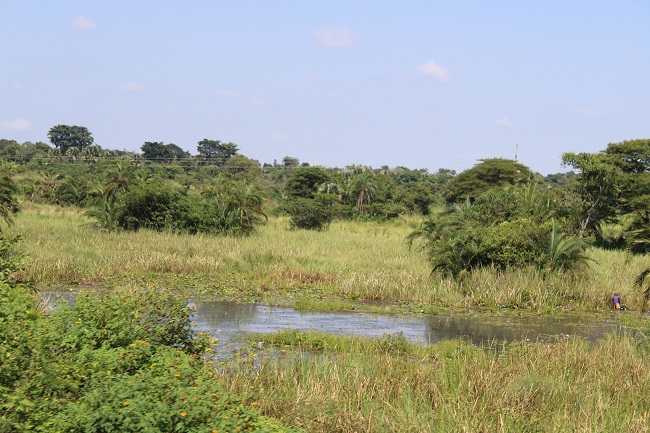LIRA – Cultural leaders in Lango Sub-region have asked the government to clearly demarcate all the wetlands if the encroachers are to be stopped from putting them under farming and other activities.
Some of the wetlands that have been encroached on are found in Ayer Sub-county in Kole, Kwania district wetlands encroached on in 10 sub-counties], Opali Sub-county in Amolatar district, Ibuje Sub-county in Apac district, and Kwera and Adekinino sub-counties in Dokolo district.
Dickens Odong Wacio,the Minister of Lands, and Physical Planning, Under Lango Cultural Foundation, said most of the wetlands and swamps are drying up due to heavy encroachment.
“Before cattle rustling, most of the swamps were used for grazing, there were no homes, people were not cultivating but after the cattle rustling, people lost most of their cattle. Now people have started cultivating. All this community has been taken. People are now building in the wetlands. The population is increasing and there is pressure on land forcing others to encroach into wetlands,” he said.
He noted that the drying of wetlands has affected the rain pattern saying most parts of Lango currently do not get adequate rains.
“We have been having rains in the past between July, August and September, but now we have no rain and there is a looming climate change-induced hunger in the region,” he said.
He said Lango Cultural Foundation is encouraging the people not to encroach on the wetlands while appealing to the government to clearly mark the wetlands.
“The population has been increasing right from 1995 when they enacted the new Constitution of Uganda up to now. People from other places have migrated here and are sharing the limited land with the locals,” he said.
Santa Ejack, a resident of Ibuje Sub-county, Apac district, laments that due to the encroachment on the wetlands, some streams have dried up, affecting livestock production as animals don’t have enough water for drinking.
“We now go very far to get water for drinking, our cattle have no water for drinking, we appeal to the government to come and demarcate the wetlands so that people don’t encroach them so that we don’t go very far looking for water,” Ejack said.
John Olum, also a resident of Ibuje cried foul blaming the government for gazetting their communal land as a wetland yet they have been using it to graze their cattle.
“Government decided to gazette our customary area as a wetland, yet the area is not a wetland,” Olum explained.
The district environment officer of Apc district, Haron Okullu revealed that 18 per percent of the wetlands have been encroached adding that every year they receive up to 20 complaints of encroachments.
“In Apac district, 44,290 hectors of land is covered by wetlands, this year we made two arrests as we have been going to enforce,” Okullu said.
In Dokolo, the district natural resource officer Rajab Epilla said, that 750 square kilometers is covered wetlands [35] out of the 1780 square Kilometers of the district.
“Now so far 38 to 40 percent of the wetlands have been degraded, this has left a negative impact on the district, affecting the aquatic animals,” Epilla said.
https://thecooperator.news/mak-conducts-research-to-move-rice-farmers-from-wetlands/
Buy your copy of thecooperator magazine from one of our country-wide vending points or an e-copy on emag.thecooperator.news
